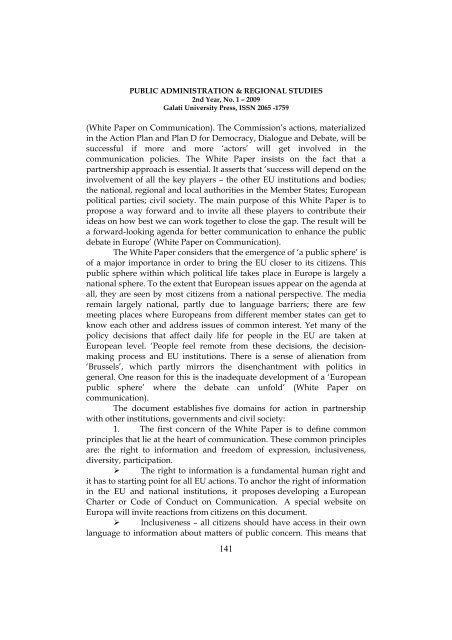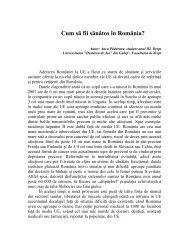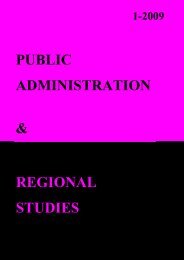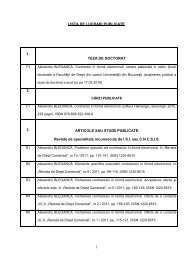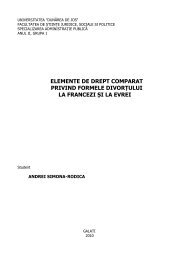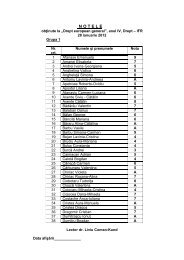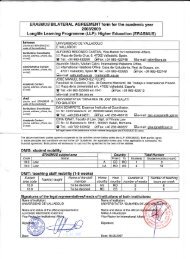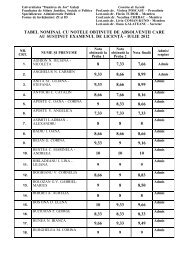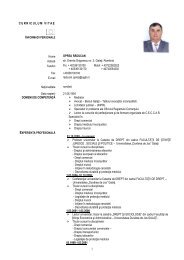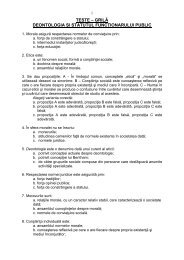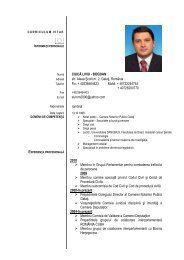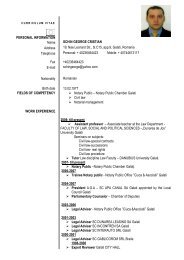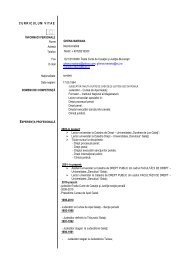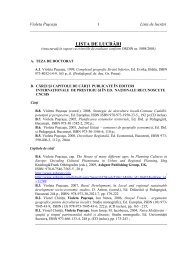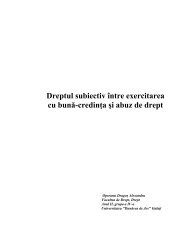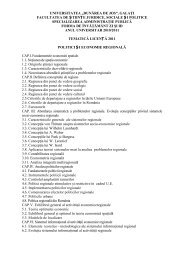regional studies public administration - Facultatea de Drept ...
regional studies public administration - Facultatea de Drept ...
regional studies public administration - Facultatea de Drept ...
Create successful ePaper yourself
Turn your PDF publications into a flip-book with our unique Google optimized e-Paper software.
PUBLIC ADMINISTRATION & REGIONAL STUDIES<br />
2nd Year, No. 1 – 2009<br />
Galati University Press, ISSN 2065 -1759<br />
(White Paper on Communication). The Commission’s actions, materialized<br />
in the Action Plan and Plan D for Democracy, Dialogue and Debate, will be<br />
successful if more and more ‘actors’ will get involved in the<br />
communication policies. The White Paper insists on the fact that a<br />
partnership approach is essential. It asserts that ‘success will <strong>de</strong>pend on the<br />
involvement of all the key players – the other EU institutions and bodies;<br />
the national, <strong>regional</strong> and local authorities in the Member States; European<br />
political parties; civil society. The main purpose of this White Paper is to<br />
propose a way forward and to invite all these players to contribute their<br />
i<strong>de</strong>as on how best we can work together to close the gap. The result will be<br />
a forward-looking agenda for better communication to enhance the <strong>public</strong><br />
<strong>de</strong>bate in Europe’ (White Paper on Communication).<br />
The White Paper consi<strong>de</strong>rs that the emergence of ‘a <strong>public</strong> sphere’ is<br />
of a major importance in or<strong>de</strong>r to bring the EU closer to its citizens. This<br />
<strong>public</strong> sphere within which political life takes place in Europe is largely a<br />
national sphere. To the extent that European issues appear on the agenda at<br />
all, they are seen by most citizens from a national perspective. The media<br />
remain largely national, partly due to language barriers; there are few<br />
meeting places where Europeans from different member states can get to<br />
know each other and address issues of common interest. Yet many of the<br />
policy <strong>de</strong>cisions that affect daily life for people in the EU are taken at<br />
European level. ‘People feel remote from these <strong>de</strong>cisions, the <strong>de</strong>cisionmaking<br />
process and EU institutions. There is a sense of alienation from<br />
‘Brussels’, which partly mirrors the disenchantment with politics in<br />
general. One reason for this is the ina<strong>de</strong>quate <strong>de</strong>velopment of a ‘European<br />
<strong>public</strong> sphere’ where the <strong>de</strong>bate can unfold’ (White Paper on<br />
communication).<br />
The document establishes five domains for action in partnership<br />
with other institutions, governments and civil society:<br />
1. The first concern of the White Paper is to <strong>de</strong>fine common<br />
principles that lie at the heart of communication. These common principles<br />
are: the right to information and freedom of expression, inclusiveness,<br />
diversity, participation.<br />
‣ The right to information is a fundamental human right and<br />
it has to starting point for all EU actions. To anchor the right of information<br />
in the EU and national institutions, it proposes <strong>de</strong>veloping a European<br />
Charter or Co<strong>de</strong> of Conduct on Communication. A special website on<br />
Europa will invite reactions from citizens on this document.<br />
‣ Inclusiveness – all citizens should have access in their own<br />
language to information about matters of <strong>public</strong> concern. This means that<br />
141


